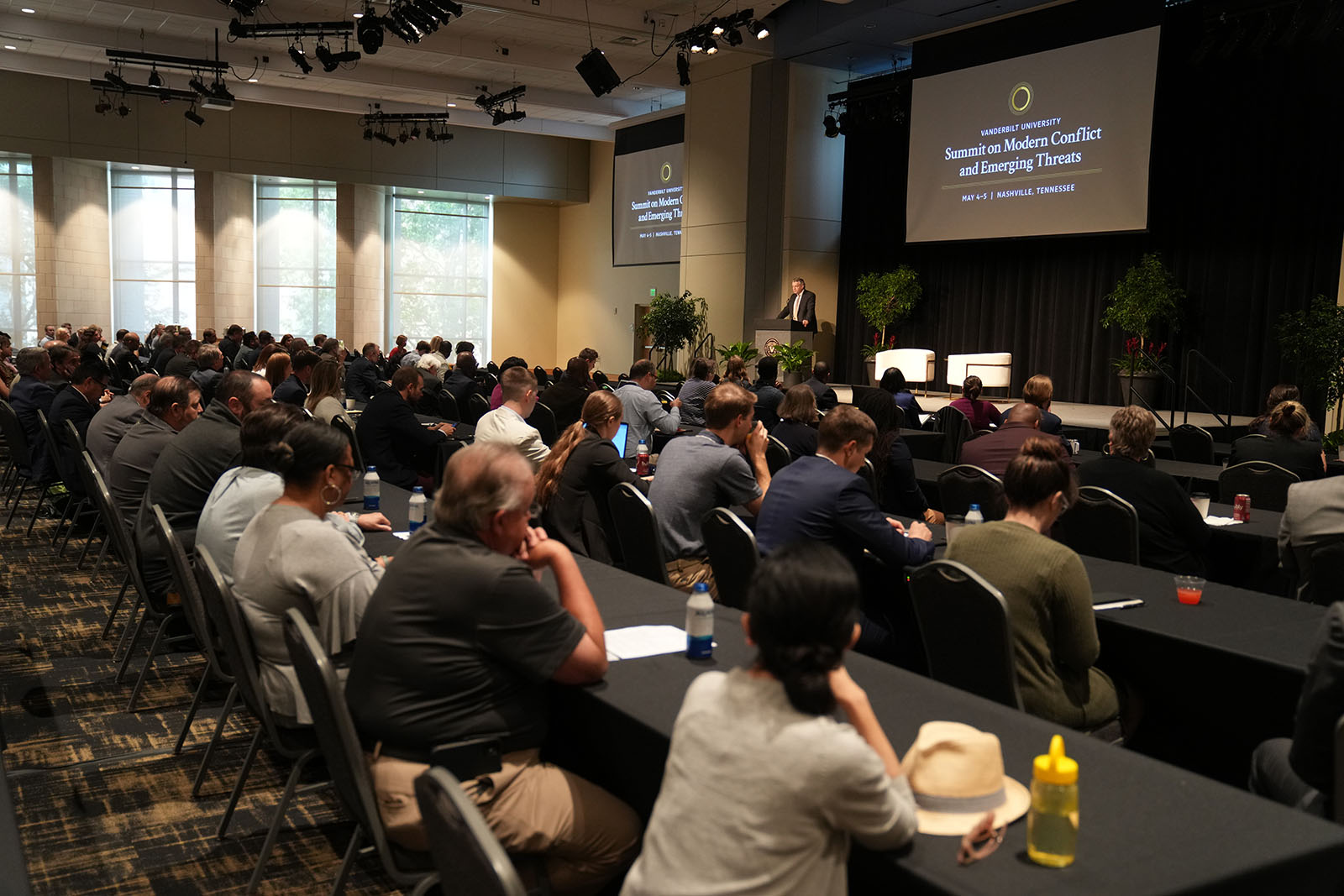U.S. Cyber Command Director Gen. Paul Nakasone shed new light on Russian cyberattacks against Ukraine and, for the first time, revealed U.S. efforts to prevent foreign meddling ahead of the 2022 midterm elections.
Nakasone’s remarks came during the inaugural Vanderbilt Summit on Modern Conflict and Emerging Threats, which was May 4–5 at the Student Life Center.
Topics of discussion during the two-day event included the importance of academic, military, government and private sector partnerships; the need to recruit, train and retain talent to lead research in vital areas; and the prevention of future epidemics and pandemics.
In addition to Nakasone, the conference hosted Kersti Kaljulaid, former president of Estonia, and a range of other military and intelligence leaders, scholars, prominent journalists and private sector experts in cybersecurity, energy and finance.
In his opening remarks, Chancellor Daniel Diermeier emphasized the broad and complex nature of modern security and threat response and how they require the kind of interdisciplinary collaboration that universities can provide.
“New types of conflicts require new ways of thinking,” Diermeier said. “It is now imperative that we, as a research institution, explore new perspectives on the emerging conflicts of tomorrow. Having the intellectual space to explore these possibilities and a culture of intense collaboration makes Vanderbilt an ideal setting to host this conference and to claim its leadership role in addressing new challenges across the global defense and security spectrum.”
Diermeier announced a university-wide initiative on the future of conflict, starting with a faculty steering committee that will advise university leadership on how to accelerate interdisciplinary research in multiple areas, including data science, AI, cybersecurity and the social sciences.
C. Cybele Raver, provost and vice chancellor for academic affairs, was one of the event’s keynote speakers. She addressed the role that universities can play in finding multi-disciplinary solutions to future worst-case scenarios.
“It’s only through our joint efforts that we can meet and combat not only the threats that we face today, but those inevitable surprises in generations to come,” Raver said. “The entire summit is carving a profoundly important path forward, not only in cybersecurity, but in ways of addressing complex, existentially threatening problems that we face today and are likely to face going forward.”
In his remarks, Nakasone stressed the need for agility in response to cyber threats and the importance of partnerships in accomplishing this.
“This is our nation’s advantage,” Nakasone said, “being able to move with speed in a domain that requires being able to be agile to threats and being able to do it with a unity of effort.”
Kaljulaid, who has emerged as an important voice in cyber defense since her tenure as president of Estonia (2016–21), emphasized the need to give groups in our society a voice to maintain robust democratic political systems.
“Our century will be spent in proving to our own people that democracies can work,” Kaljulaid said in conversation with Brett Benson, associate professor of political science and Asian studies. “We need to enlarge the sphere of influence of the freedoms and the free world, because people really want them. We don’t have to force them on people globally. People have this drive themselves.”
Other speakers at the two-day event:
- Rob Joyce, director, National Security Agency, Cybersecurity Directorate
- Gen. William J. Hartman, commander, Cyber National Mission Force
- Anne Neuberger, deputy assistant to the President and deputy national security advisor for cyber and emerging technology
- James Crowe, director, Vanderbilt Vaccine Center
- Gillian Tett, chair of the editorial board and editor-at-large, US Financial Times
- Rana Foroohar, global business columnist, associate editor at the Financial Times
- Dina Temple-Raston, senior correspondent, The Record, and host/executive producer, Click Here podcast
Visit the summit website for a complete list of speakers and to watch the event’s keynotes and panels.










